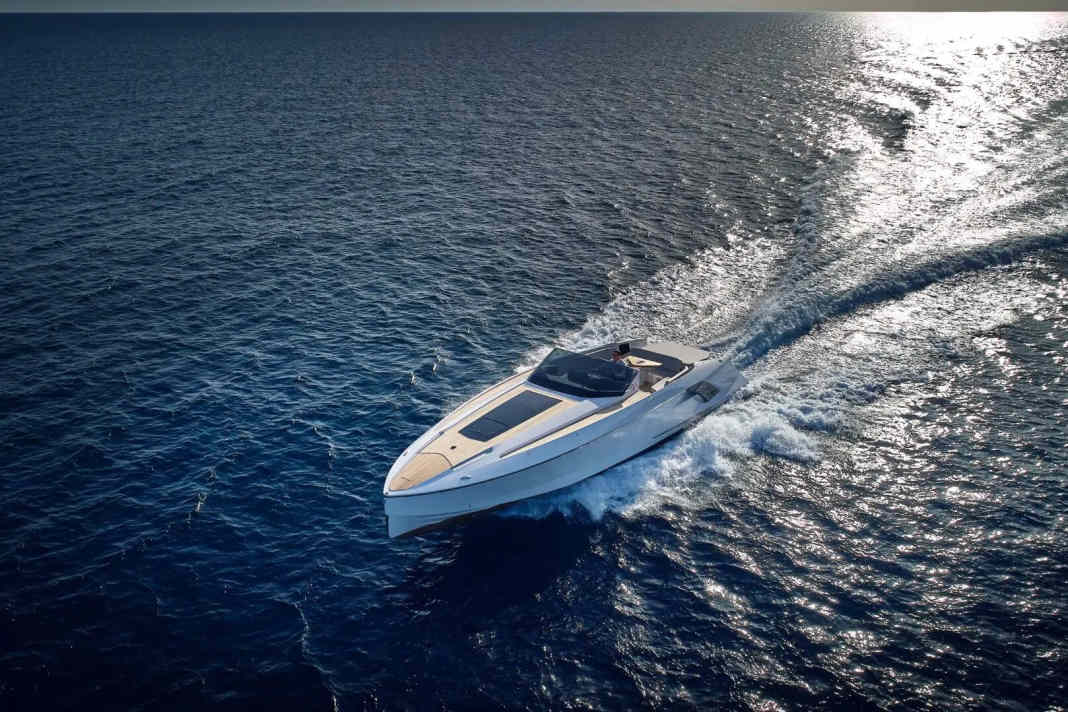Trump tariffs: All US orders are on hold - the American market is collapsing for European shipyards
Hauke Schmidt
· 09.04.2025



"The US tariffs are currently having a strong impact on our activities in the USA. Most orders are currently set to 'hold'. Above all, the uncertainty as to whether these tariffs will remain in place or whether there will soon be an agreement between the EU and the US is paralysing any future orders for the moment. Our American partners do not want to order boats with customs duties now, as there is a possibility that these duties will soon be reduced again. The next few months will hopefully provide clarity on this and then we expect the situation to ease," says Managing Director Stefan Frauscher. "Our options for reacting to the American tariffs are limited. However, we are in the fortunate position of having a strong domestic market in the EU. We also have new, well-functioning markets such as Turkey and Canada. The fact that we offer two different product lines, motorised and electric boats, is also having a positive impact, especially now in challenging times," Frauscher continues.
Temporary problem, Bavaria and Hanse are confident
A more differentiated picture emerges for the large German shipyards. Marcus Schlichting from Bavaria Yachts explains: "The share of our US business is relatively small in relation to our sales in Europe. And the actual amount of the tariffs imposed by Trump on boat exports to the USA is not yet fixed in the long term." Schlichting sees the greater danger in the general uncertainty: "Much worse is the uncertainty that is now being exacerbated by the discussions about tariffs among European customers. Investments in the private sector in particular, and yachts are nothing else, are being postponed and are putting a strain on our business."
Hanse Yachts takes a similar view. The Greifswald-based company is affected with its Hanse, Dehler and Moody sailing boat brands as well as its Fjord motorboats. They doubt that the tariffs will last long. "We are relying on the EU's negotiating skills and have not yet lost any customers," says a member of the sales team.
Dramatic effects in the sailing boat segment
The Swedish sailboat shipyard Hallberg-Rassy has been hit much harder. "President Trump's tariffs are also hitting us hard, because the USA is our largest single market. His tariffs are paralysing the market, not just for us, but for everyone who exports to the United States, and that has consequences for the whole world. For a Hallberg-Rassy buyer from the USA, the price will rise by 34 per cent if the boat is to be delivered there," shipyard boss Magnus Rassy told the Swedish newspaper ST-Tidningen. The shipyard, which has so far been able to maintain production at full capacity, is now forced to reduce production to 62 per cent. This also means massive job cuts. Around one in three of the 194 employees will have to go.
Despite these cuts, Magnus Rassy is cautiously optimistic about the future. The company is debt-free, has low fixed costs and has many years of experience in adapting to market changes.
The entire industry is affected
The problem is not limited to Hallberg-Rassy alone. The European Boating Industry (EBI), the umbrella organisation of the European boating industry, warns of the far-reaching consequences of Trump's tariffs. In a statement, the ECI already emphasised on 3 April that customs duties are a burden on companiesThe ECI welcomes the EU's aim to find a negotiated solution with the US and agrees to put forward proposals to promote mutual success in the recreational boating industry. The ECI welcomes the EU's aim to find a negotiated solution with the US and is prepared to put forward proposals to promote the mutual success of the recreational boating industry. The association believes that a permanent elimination of tariffs would support economic growth, jobs and investment on both sides of the Atlantic.
More about Trump:
How the tariffs affect the US boat industry
The effects of President Trump's trade policy are also evident in the USA itself. According to a survey of US boat manufacturers conducted by the National Marine Manufacturers Association (NMMA), 93% of respondents believe that the tariffs on aluminium and steel will have a negative impact on their business. Manufacturers report rising costs, delivery delays and difficulties in procuring materials.
Uncertainty about future trade relations and possible further tariffs is weighing on companies' planning security. Many US manufacturers fear that the rising costs will ultimately have to be passed on to consumers, which could lead to a decline in demand.

